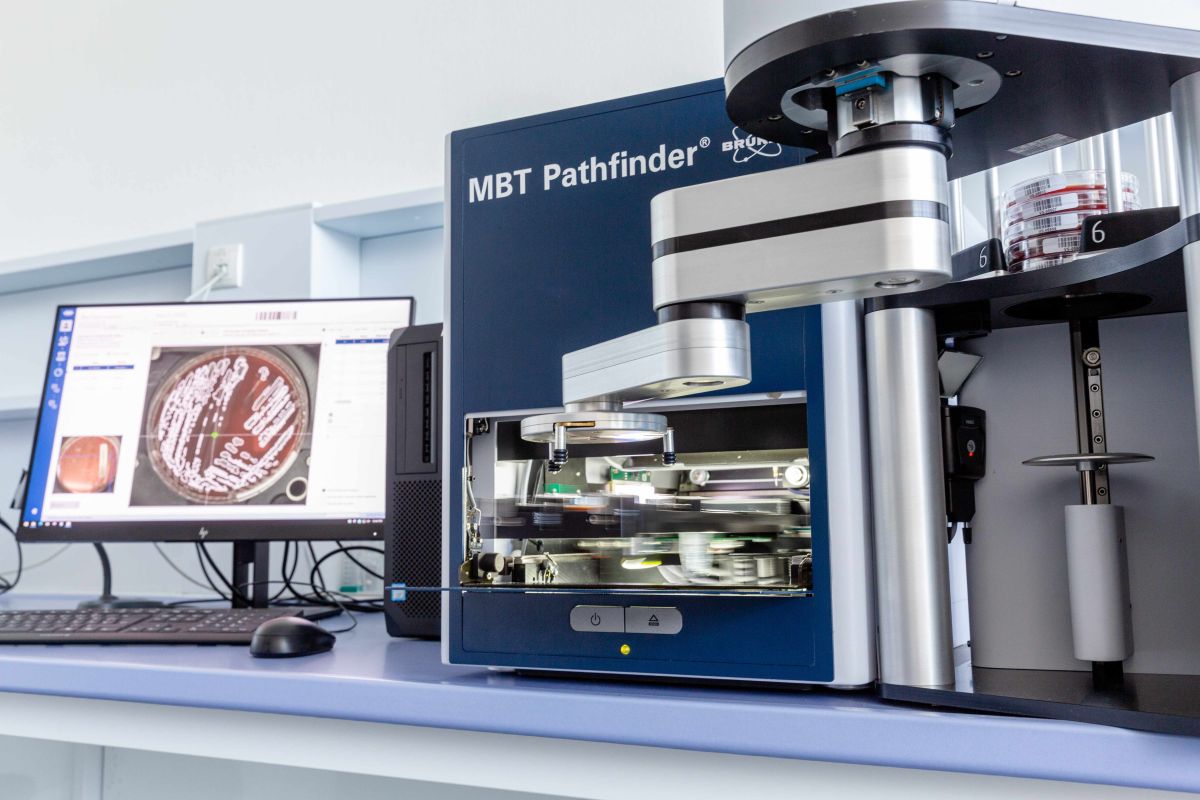Robots, made in #brnoregion: BRUKER automates microbiology for personalized medicine
Imagine you have a sore throat and visit your doctor. They can either prescribe broad-spectrum antibiotics that successfully fight a lot of bacteria, but unfortunately eliminating the useful ones in the process as well or antibiotics tailored to your needs to eliminate only the bacteria causing the discomfort. This is why it’s important that the doctor takes samples and has them sent to a microbiology laboratory for fast identification. What happens next, though? “The laboratory technician spreads your samples onto a cultivation medium in a Petri dish and has them warmed up to 37 °C. If it’s a bacterial infection, one or more bacteria colonies will grow in the dish, usually within 48 hours,” explains Hana Dvořáčková, product manager at Bruker.
Mistakes in the lab? Our archenemy!
The technician then continues processing the colonies, testing them through mass spectrometry, among other methods. “The technician puts the samples onto a special test board and applies chemical agents called reagents to help determine the type of bacteria,” continues Hana Dvořáčková. The technician then waits for the agents to dry up in order to continue working with the sample through mass spectrometry. “Each step of the entire process needs to be carried out precisely. If the technician takes less or more time or even skips one of the steps, you may not find out what type of bacteria is bothering your throat,” emphasizes Hana Dvořáčková.

To control the quality and eliminate human error, the crew at Bruker developed a robot to help substantially with the process. “The robot pre-selects suitable colonies for the technician, moves them onto the test board, applies the reagents, and precisely measures the time each step of the process takes. It carries out each process identically every single time, and even documents it – from putting the sample onto the board to administering the reagents and drying the samples,” explains Dvořáčková. A human technician is still needed to control the gadgets that process and identify the samples, especially to confirm the suitability of the colonies selected to be identified. What’s the big advantage of automation then? The technician is free to take care of numerous other activities while the robot is working, and the lab gets a tool for precise quality control which has recently become increasingly important.

The big advantage of the robotic lab technician lies in its connection to a mass spectrometer which takes care of the final job – identifying the bacteria. “The machine was introduced in April at the ECCMID conference, and we’d like to launch it by the end of the year once a series of certificates have been obtained,” explains Jan Karásek from Bruker.
Robotic identification now goes hand-in-hand with robotic sample preparation! And what are developers planning next? To make the hardware as compact as possible and expand the robotic automation even further. “It’s for these purposes that we’ve been planning to keep expanding our Bruker’s R&D team in Brno, and you are welcome to join it!” concludes Jan Karásek.
